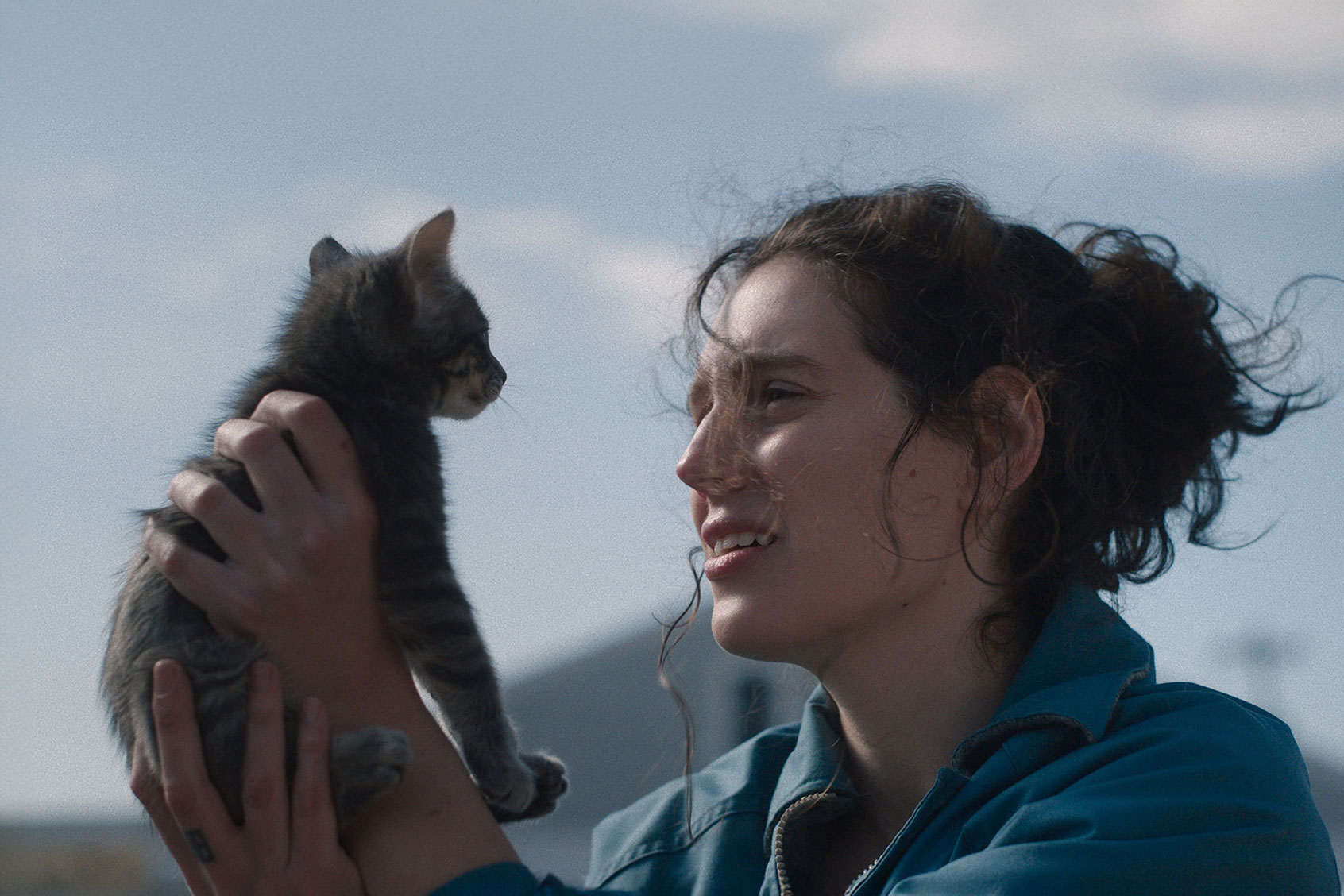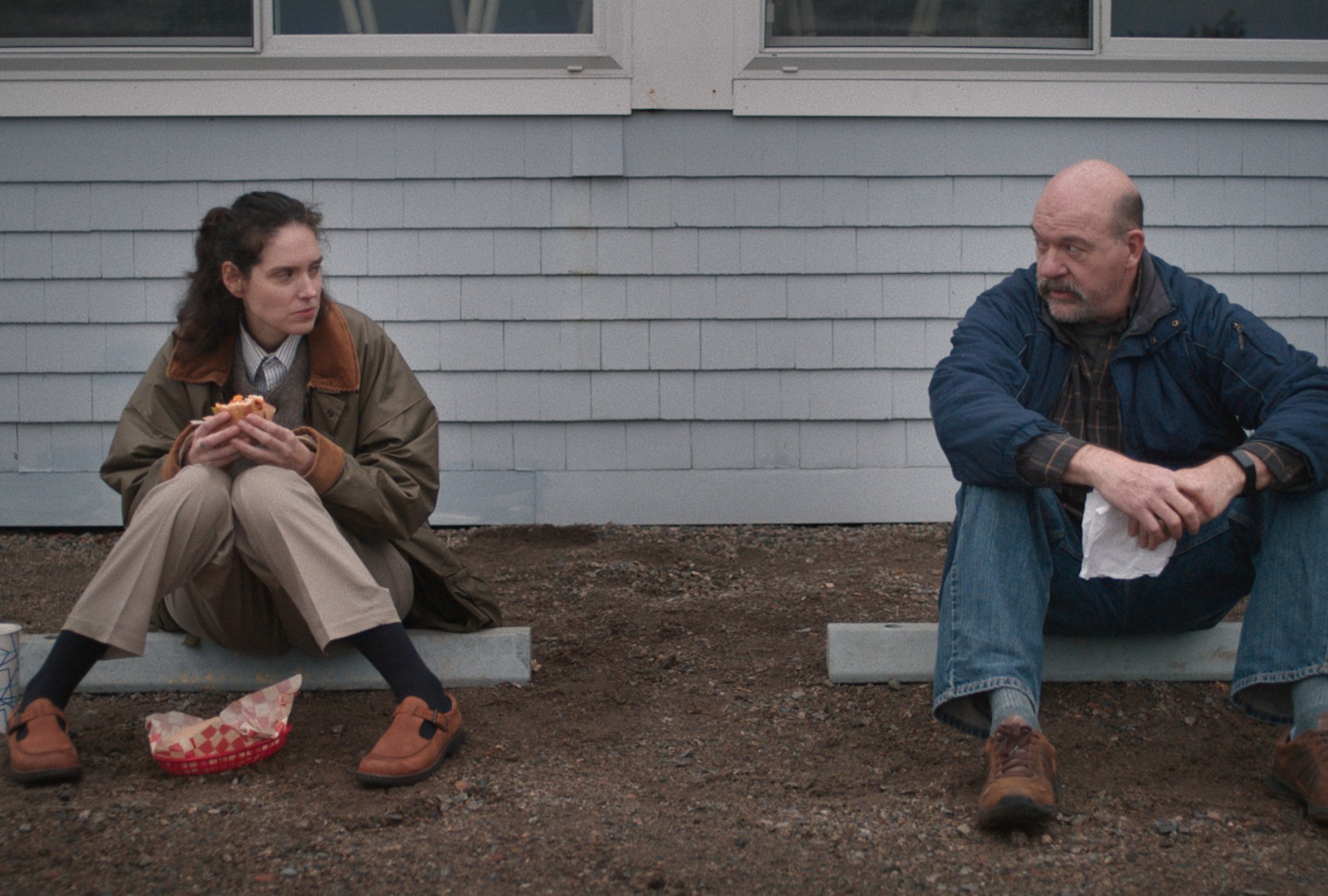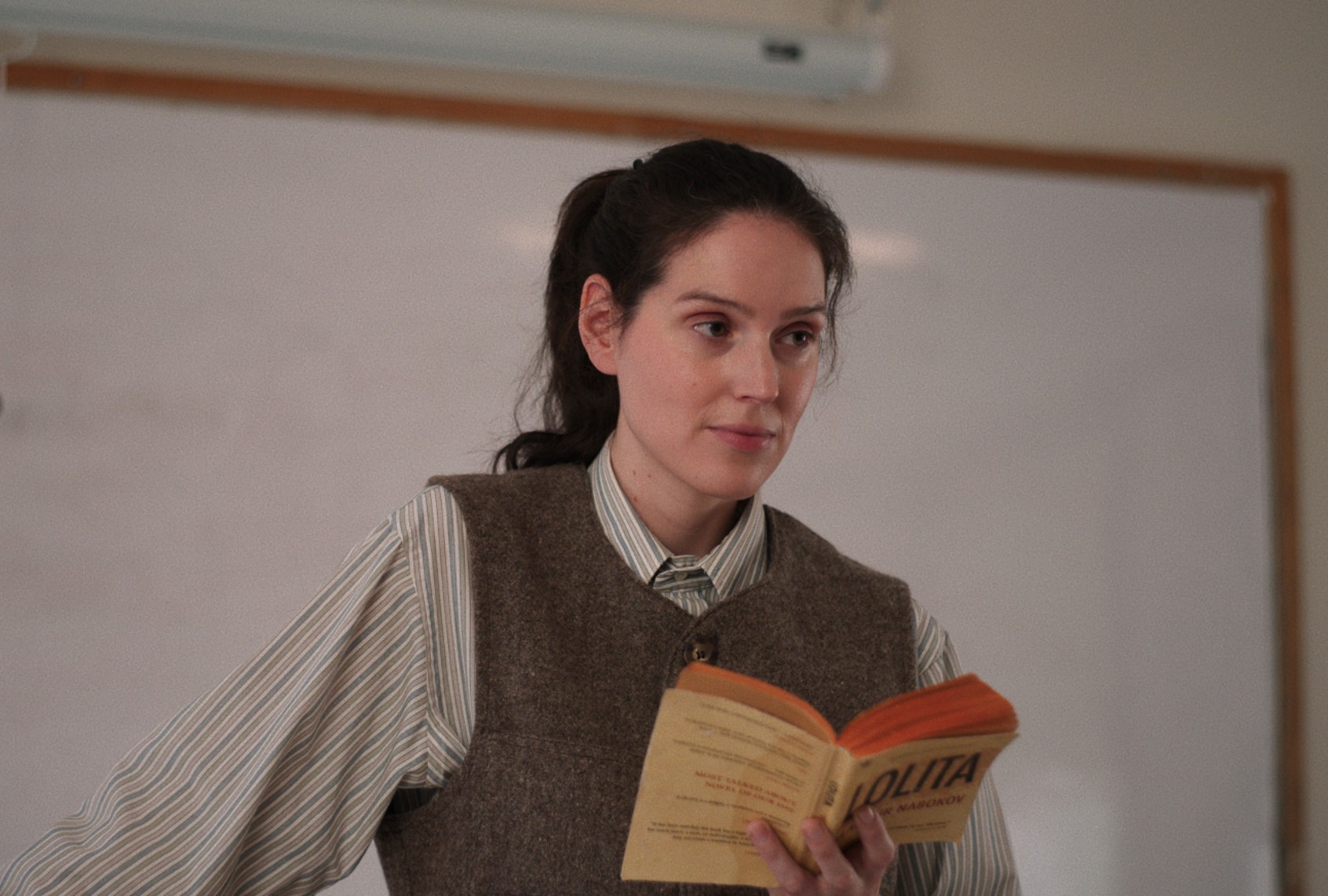When seismic events occur, part of the rational human response is to compartmentalize, even making light of the trauma. In the same way that we laugh at ourselves and try to play off accidentally tripping on a raised portion of concrete on the sidewalk — turning our fumble into a little half-jog for a moment, as if we intended to get tripped up — it’s tempting to shoulder the blame when obstacles force themselves in our way. We’re not always afforded the luxury of taking a beat to process shock. Bills have to be paid, careers must be tended to, the cat’s got to get fed. The thought of approaching pain with the old, “So, that happened!” and moving forward is, too often, the easier option.
In the brilliant new film “Sorry, Baby,” Agnes (played by the film’s writer and director, Eva Victor) never actually brushes off her trauma with that trite, millennial-favorite phrase. Still, it may as well be implied by the character’s disaffected approach to the tectonic event that undergirds Victor’s dryly funny, intimate debut. Agnes doesn’t explicitly name the incident she’s grappling with, and she doesn’t have to. Since the beginning of time, stories, scripture, films, television, poems, songs, speeches, paintings and the nightly news have taken care of that for her, identifying the violence with such cold morbidity that the people it happens to are all but removed from their own experiences. To name the act is to risk having a stranger scrub away your humanity and turn it into a statistic. Sometimes, it’s easier just to keep anguish as a nameless, formless thing, as Victor does in the first half of the film’s tagline: “Something bad happened to Agnes.” But, as Agnes learns, turning trauma into an amorphous entity has its drawbacks, too.

(Courtesy of Sundance Institute/Mia Cioffi Henry) Eva Victor in “Sorry, Baby”
In stunning fashion, Victor defangs without destigmatizing, careful not to downplay the severity of assault just so it can be easier to talk about. With “Sorry, Baby,” they have crafted cinematic sanctuary, a film that can act in the absence of a friend, embracing the viewer in its warmth for as long as it takes the pain to pass.
“Sorry, Baby” is not a film about the act — and to name it as sexual assault, categorizing it into a subgenre of art about this violence, feels almost antithetical to Victor’s thoughtful screenplay — it’s a movie about the person it happened to. Victor deliberately keeps the viewer at a distance from the cruel atrocity Agnes suffers; this brutality is not for anyone’s gaze, lest it be mistaken for the ghoulish voyeurism filmmakers sometimes force audiences to endure, to differing intent. Assault is decentered to keep Agnes at the heart of the film, and Victor’s mature approach to navigating Agnes’ life in the years that follow creates a completely unique and winsome sense of safety for the viewer. In stunning fashion, Victor defangs without destigmatizing, careful not to downplay the severity of assault just so it can be easier to talk about. As Agnes soon finds out, trauma like this is manageable one day and unbearable the next. What matters is how we process those excruciating moments, and who we keep in our orbit to hold our hand when we need them to. And with “Sorry, Baby,” Victor has crafted cinematic sanctuary, a film that can act in the absence of a friend, embracing the viewer in its warmth for as long as it takes the pain to pass.
In Agnes’ journey, her best friend Lydie (Naomi Ackie) serves as this reliable companion. Agnes and Lydie are in the same English grad program at a college in small-town Massachusetts, where the intense curriculum has rolled students into a tightly knit micro-community. While everyone else is vying for faculty praise, Agnes earns it effortlessly from Preston Decker (Louis Cancelmi), the handsome, charming professor revered by all his pupils. The two share a natural, enviable rapport, and when Agnes submits her thesis, Decker is all too happy to sing her praises, offering to give her notes firsthand. When Decker moves their meeting to his house at the last moment, Agnes doesn’t think much of it, walking there straight from campus. We watch as Agnes enters the home and the door closes behind her. In the hours that pass, kids laugh nearby. A couple of friends stroll past the house, chatting. Everything is normal. But for Agnes, normalcy is about to become an abstract concept. With chilling nonchalance, Victor observes the start of a hairline fracture that will eventually produce a painful crack.
But this all happens later. “Sorry, Baby” is told in non-chronological chapters, mirroring the fragmented way Agnes is forced to go through life after enduring the big, bad, unnamed thing. Life can be disorienting in the wake of surviving something awful. Something that happened months ago can feel like it happened just yesterday, and vice versa. And at the outset of the film, already years after the event, Lydie can feel just how much it still lingers in the house she once shared with her best friend during their grad school days. “Agnes, please don’t, like, die,” Lydie tells her during a visit. As much as she means it literally, Lydie also doesn’t want to see Agnes make herself so small that she becomes nothing. A person can get lost in a big house, all alone, with nothing but their memories as a cold bedfellow.

(A24) Eva Victor and John Carroll Lynch in “Sorry, Baby”
Being tasked with holding onto your humanity and then some is a burden so heavy that, sometimes, all we can do is laugh to make the load feel a little bit lighter. The wit isn’t glib, nor facetious. Rather, it’s plain and true, and “Sorry, Baby” isn’t afraid to delve into the darkness and look for the places where the light can still peek through.
Throughout the film, Agnes welcomes some companions — Lydie for visits, a kitten that grows up into a mouse-maiming cat, her sweet neighbor Gavin (Lucas Hedges) — and they all serve their purpose in keeping her level. But Agnes is still very much walking this road alone. Third parties outside of this small group who know of Agnes’ situation are of little help. When Lydie brings Agnes to the hospital the day after her assault, the male doctor’s lack of bedside manner is jarring. “I know this is hard to talk about,” he tells the pair. “It doesn’t feel like you know that,” Lydie responds. With searing yet quiet familiarity, Victor derides the way trauma is handled with callous frigidity. Yet, remarkably, they don’t villainize these figures who, no matter how hard they try, can’t seem to say the right thing. “Sorry, Baby” notably accepts the formality that occurs in discussions around assault, admitting that this is not a world that is built for the comfort of everyone who lives in it. But that doesn’t mean Victor is giving uncaring minds a free pass, only that Agnes must make concessions where she can. Of course, having to allow for other people to treat you like a problem that must be solved is not ideal. When supervisors at her college try to comfort Agnes, their solace is hollow. “We know what you’re going through . . . we’re women,” they tell her. Like Charli XCX said, all this sympathy is just a knife.
Start your day with essential news from Salon.
Sign up for our free morning newsletter, Crash Course.
What’s all the more extraordinary is that Victor approaches these unhelpful figures with far more empathy than they provide Agnes. As a filmmaker, Victor is particularly skilled at doling out warmth, dotted with almost shockingly droll lines of dialogue along the way. They proficiently highlight the grim humor in so many of Agnes’ conversations, understanding that moving through the world, asking for a little bit of compassion, is hilariously mortifying, even if it shouldn’t be. Being tasked with holding onto your humanity and then some is a burden so heavy that, sometimes, all we can do is laugh to make the load feel a little bit lighter. The wit isn’t glib, nor facetious. Rather, it’s plain and true, and “Sorry, Baby” isn’t afraid to delve into the darkness and look for the places where the light can still peek through.
But it’s when Victor allows the audience to sit with Agnes, all alone, that “Sorry, Baby” truly transcends form. There are questions that we can feel Agnes silently asking herself — “Was I smart?”; “Was I special?”; “Does my work have value, or was it just a means to a violent end?” — that Victor never needs Agnes to answer out loud. It’s no wonder she can’t bear to look at her thesis again, tearing it apart and using it to cover one of her windows. Agnes is riddled with self-doubt and apprehension, while being overcome by the fear of being coveted by a figure she can’t see. The pressure of holding all these feelings is too much. Other times, it’s nothing. Agnes is no better at predicting what a day will bring than she was before something bad happened to her; she’s just learning how to be more equipped. “It’s a lot, being here,” Lydie tells her at one point, referring to the cloud of trauma that comes and goes. Agnes pauses for a moment before adding, “It’s a lot to be wherever.”
With this line, and so many astute observations just like it that beautifully adorn “Sorry, Baby,” Victor hits something incredibly real, yet forever opaque. It’s all a lot: being alive, holding all our experiences, bad and good, moving forward. Wherever you go, there you are, and Agnes knows this just as well as you and I do. “Sorry, Baby” may be Agnes’ story, but the way Victor tells it is singularly universal. In a moment when it often seems like everyone is out for themselves, Victor has made a film so honest that it feels, as cliché as this sounds, like a hug from a friend. Maybe that’s what we need, something or someone to stop us in our tracks and remind us that it’s okay to take a beat and feel it all before we go back on our way.
Read more
about films and TV intelligently tackling tough subjects


